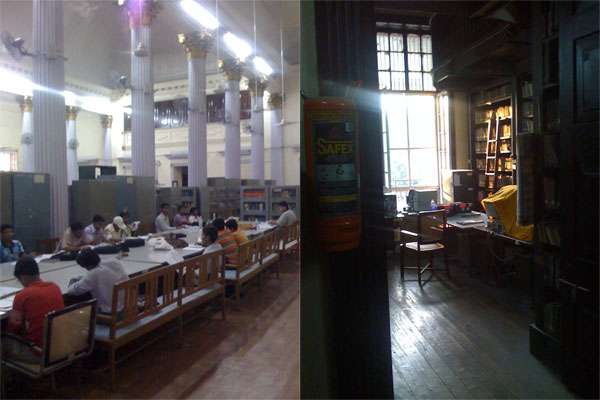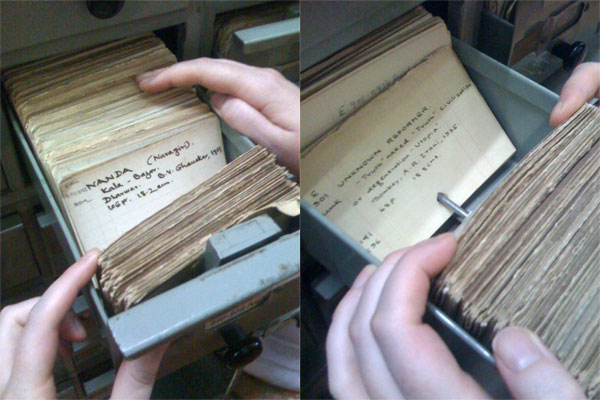I’ve just returned from a quick trip to India: with my brain yet furry from jetlag, I’ve yet to come to any understanding of what I experienced there, should such be possible. But while in Delhi, I picked up an enormous book entitled 60 Years of Book Publishing in India, a compendium edited by Dina N. Malhotra in 2006, which I made my way through on the flight back to New York. If you’re looking for an overview of the Indian publishing industry and how books function in modern India, as I was, this is a decent place to start. As you might expect, book publishing in India is enormously complex: 80,000 books are published a year by 16,000 different publishers in India’s 22 major languages. Translation happens between Indian languages and to and from non-Indian languages. Piracy is a major issue: a number of contributors bemoan the fact that anything published in Bengali is immediately pirated in Bangladesh (and shortly thereafter on sale in the shops of my neighborhood in Queens). It’s not hard to get any book copied and rebound in an Indian town of any size; pirated books are readily sold on the street.

While there are Indian libraries, they’re not organized or particularly supported by the government. (The pictures scattered through this are from the Asiatic Society Mumbai, the city’s largest library open to the general public.) India’s linguistic diversity – a level comparable to that of Europe – is one of its great strengths, but this complexity has also complicated efforts to systematize knowledge. A more complicating issue is the issue of literacy, a function: while the country has made astounding gains since independence, adult literacy is still around 60%. An article by Mohini Rao entitled “Publishing Children’s Books” gives a sense of the space that books in India exist in:
India is a country of extremes and contrasts where the very modern and the very old coexist. On the one hand, we are anxious to use the latest printing technology and, on the other, there are some parts of the country where people have not even seen a printed book! People are at various stages of development. The Space Age has taken over even before the Dark Age could completely recede into history. We are facing the post-literacy problems even before achieving complete literacy. We are coping with the information revolution even as we struggle with pre-industrial problems. . . . According to the report of the committee on TV software, ‘. . . Electronic media like the radio and TV have the potential of transcending the literacy barrier and therefore also the class barrier.’ TV has made it possible for the non-literate masses to have access to information, and consequently, to the fruits of development without first crossing the literacy barrier. People belonging to the pre-industrial era can take a leap into the post-industrial era without passing through the stages through which the West had to pass.
(p. 257.) The prospect of a leap to the post-literate (however that might be defined) isn’t one that’s strictly confined to India. In a broader sense, it’s an issue the entire world is facing, and an issue that if:book has been engaged with since its inception if not always consciously. We look at reading and writing through an historical context that we’ve passed through: we can only think of what comes past the book by thinking through the book. No writing on technology can be entirely immune from this perspective. (A number of the articles in 60 Years, for example, offhandedly remark that the problem of book piracy in India will be solved at that point copyright is enforced as it is in the West, a position which seems hopelessly optimistic: copyright laws can’t escape Benjamin’s avenging Angel of History.)

Much of the criticism of Sven Birkerts’s Gutenberg Elegies accused the author of being blind to the future because of the past. But Birkerts, I think, was right in a very basic sense: we can’t help but see the future through the lens of the past. The narrative of the Gutenberg Elegies is autobiographical, tracing a life constructed through books. The conversation that takes place on this blog is a product of the same forces, regardless of one’s preference for print or screen reading. We’d like the Institute’s values to be those of literate humanism: how do we account for a possible future post-literate population? The book to come belongs to everyone: it would be presumptuous to assume that everyone is like us, or should be like us.
If a lion could speak, Wittgenstein pointed out, we could not understand it. St. Jerome, patron saint of translators and noted lion-keeper, ordered his lion about, though he’s not recorded as listening to what his lion might have had to say. But understanding the coming position of the book in India and the world is probably not a matter of translation, which requires literacy, but rather one of transformation, a making of new forms. How can we start thinking about this problem in a sensible way?
